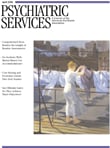Forensic Ethics and the Expert Witness
Once an obscure subspecialty, the discipline of forensic psychiatry has progressed rapidly. Once marginal and even controversial, it has become increasingly pervasive and widely accepted. It is not quite universally respected yet, but it is clearly maturing, a fact to which the volume reviewed here provides compelling evidence. It also provides worthwhile material for profitable reflection by professionals across mental health disciplines.
By indicating in his introduction to the book that the usual rules of medical ethics do not apply in forensic work—and by focusing on the central issue of relationships—Paul Appelbaum might be opening the doors more widely than he intended. Reflection on the central place of relationships in order to discern what is ethical in practice forms the core of this volume's contribution. The authors carefully build on this firm foundation and present "a new integration of thought," as their acknowledgments section affirms.
The integration of thought begins with a broad and concise tour through an essential history lesson, beginning with the ancients and building on epistemological contrasts between natural science and the law to reach a lively and illuminating review of key ethical developments and debates that began with the emergence of forensic psychiatry and still continue. A brief contrasting account of the undisputed elements of ethics in this field follows. This sets the stage for an introductory summary of the two newer elements forming the heart of the authors' contribution: the emerging awareness of the ethical importance of culturally sensitive narrative and the development of a robust integrating professionalism. In preparation for treating each of these in detail, the authors provide a worthwhile set of illustrative case examples and typical probing ethics questions and answers—or at least opinions—followed by a brief yet comprehensive and useful summary of the current accepted ethics theories, both popular and somewhat lesser known.
As readers pursue the authors' developments of both narrative ethics and robust professionalism, I believe most will notice an interesting surprise. The concepts being exposed are of at least equal value regardless of one's particular professional focus. The discovery is clearer for following the carefully drawn distinction between the roles of clinician versus expert witness. The concepts could also be utilized fruitfully to evaluate research proposals involving human subjects. In this light the appendix of ethics codes from four professional organizations is not a mere appendix at all, but rather a set of starting points for developing one's expertise in ethics in ways that advance the ethical quality of one's practice.
The three collaborating coauthors invite readers to further study their broadly ranging sources, including some undeservedly overlooked literary works. Some important points are undertreated or omitted, but the 50-page concluding section bridges many inevitable gaps. Using a seminal and controversial essay followed by a series of commentaries and discussions, the authors take their readers on a magnificent tour that prompts profound reflection in one moment and instructs on logical fallacy in the next. Thus the reader is prepared for a soft landing cushioned by a salutary humility in realizing the breadth of our professional interdependence. This book deserves and will amply repay attention from a wide audience, including all the mental health disciplines.



